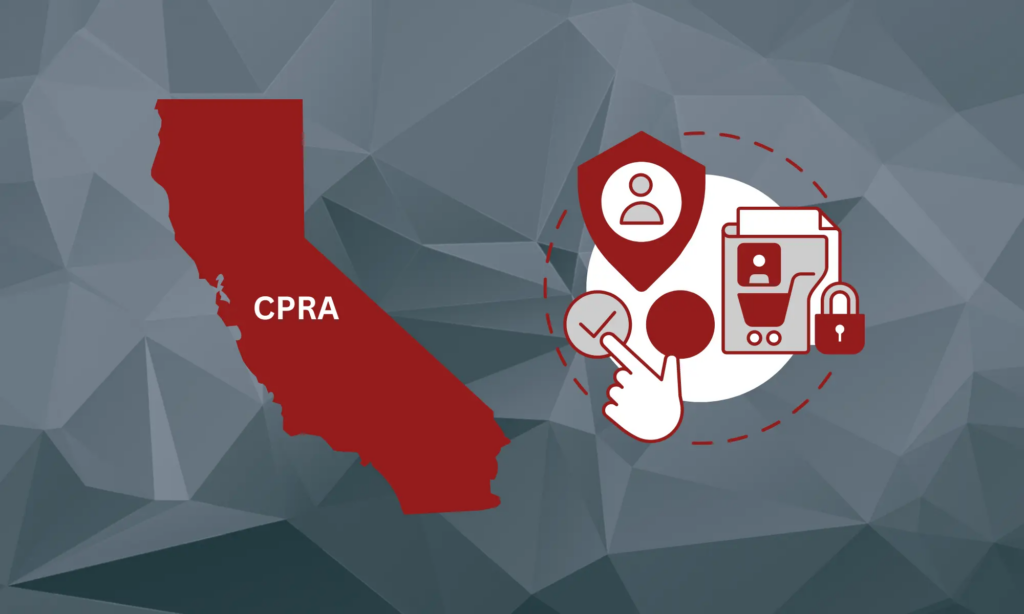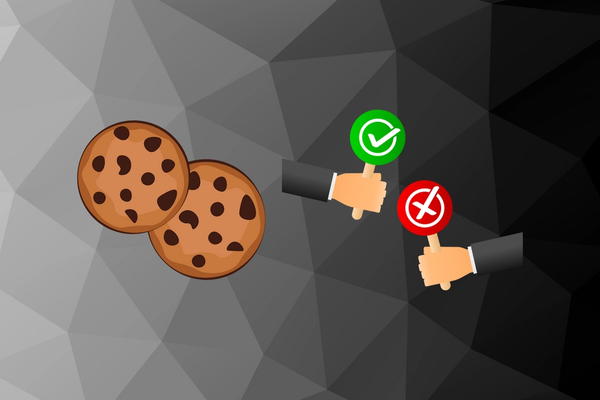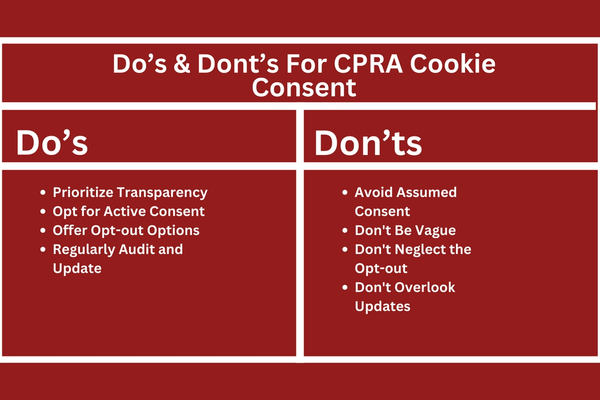
If you process data of residents in California, then you may wonder if CPRA cookie consent is required. Well, that’s what you’ll learn in this article.
It’s more important than ever to understand the California Privacy Rights Act (CPRA) and how to comply with it to avoid legal fines and reputational damage to your company.
In this article, we’ll dive deep into what CPRA cookie consent means and its requirements, and we’ll also offer insights into staying compliant without compromising the consumer experience.
Key Takeaways
The CPRA makes informed consent important, requiring businesses to be transparent about data collection, especially when utilizing cookies that process personal or sensitive information.
While not all cookies require consent under the CPRA, businesses are urged to prioritize consumer privacy, adopting practices that proactively inform consumers and allow them easy control over their data.
Non-compliance with CPRA provisions carries severe financial and reputational consequences, emphasizing the need for businesses to align with the law’s mandates and uphold consumer trust.
What is the CPRA?
What is the CPRA.png

The California Privacy Rights Act (CPRA) represents a significant evolution in the domain of data privacy in the United States. Rooted in its predecessor, the California Consumer Privacy Act (CCPA), the CPRA takes a step further, enhancing the data privacy rights and protections of consumers in the state of California.
The act sets forth stringent regulations that businesses must adhere to, ensuring that the personal information of consumers is protected and handled responsibly.
The CPRA aims to strengthen transparency, accountability, and consumer control over personal data.
It grants consumers data subject rights such as access to their data, the ability to delete or correct data, and the right to opt out of having their data sold or shared. The act also introduces the concept of sensitive personal information, setting even stricter guidelines for handling data.
As a result, businesses must be more transparent about their data collection, processing, and sharing practices, ensuring that they prioritize consumer privacy and establish robust data protection mechanisms.
Tip: Check if you’re exempt from CPRA regulations here.
How Does the CPRA Define Consent?
Consent, under the CPRA, is not a mere formality but a foundational principle that emphasizes data privacy and control. The act defines consent as a clear, affirmative action that signifies a consumer’s agreement to the processing of their personal or sensitive personal information for a specific purpose.
The CPRA mandates that consent must be freely given, informed, and explicit (in certain cases). This means businesses cannot hide behind vague or complex legal jargon. Instead, they must present information about data collection and processing in a clear and straightforward manner.
Furthermore, pre-ticked boxes or default opt-ins are not considered valid consent forms. California consumers must have the genuine choice to agree or disagree without facing any detriment.
Lastly, the act ensures that consumers can easily withdraw consent anytime, emphasizing the importance of consent management and consumer autonomy.
Does the CPRA Require Consent if Your Website Uses Cookies?
Does the CPRA Require Consent if Your Website Uses Cookies.png

Cookies, being small files stored on a consumer’s device when they visit a website, can contain or process personal information. This directly brings them under the purview of the CPRA.
Shawn Loveland, Resecurity COO, says:
“CPRA doesn’t require cookie consent, but users must be given the right to opt-out. Consumers have the right to opt-out of selling or sharing personal information, limit disclosure of sensitive information, and opt-out of cross-context behavioral advertising.”
However, the act emphasizes the importance of informed consent when certain personal information, like sensitive personal information, is collected, processed, or shared.
So, if a website uses cookies that collect such information — especially those involved in tracking, analytics, or targeted advertising — consent becomes crucial.
Strictly necessary cookies, those essential for a site’s basic functions like navigation, do not require consumer consent under the CPRA. They’re fundamental to the website’s operation, and their purpose isn’t about collecting consumer data for additional processing.
Here are some recommendations for CPRA cookie consent:
Transparency: Use a cookie notice or pop-up to inform visitors about the types of cookies your site uses. Clearly explain their purpose, whether it’s for analytics, personalization, or advertising.
Active Consent: Instead of pre-ticked boxes, allow consumers to actively opt-in to non-essential cookies. This ensures that you’re collecting and processing data only from those who have given explicit consent.
Easy Opt-out: Just as giving consent should be easy, withdrawing it should be straightforward too. Provide clear instructions on how consumers can manage or delete cookies if they change their minds.
Regularly Review and Update: Cookie practices and technologies evolve. Regularly review the cookies your website uses and update your cookie consent practices accordingly.
Need a custom solution for this to fit your business needs? Schedule a free consultation here to find out how we can help you.
Does the CPRA Require Consent Before Using Cookies?
Navigating the California Privacy Rights Act (CPRA) and its cookie consent requirements brings forward questions about how businesses should approach cookies, particularly in the context of obtaining prior consent.
At its core, the CPRA conveys the importance of transparency and data privacy on the internet.
Under the CPRA, businesses are not explicitly mandated to obtain consent before using every type of cookie, as it functions under an opt-out system.
The act primarily emphasizes the rights of consumers to be informed about how their personal information and sensitive personal information are being used and the ability to opt out of having this data sold or shared.
However, where cookies act as tools for collecting, processing, or sharing such personal information, especially for purposes like targeted advertising or analytics, the requirement for prior consent becomes crucial.
Essentially, if a cookie can track a consumer across websites, compile profiles, or assist in delivering targeted content, businesses need to be upfront and clear about these actions.
Here are some of the best practices for cookie consent under the CPRA:
Clear Communication: Before setting any cookie that could potentially gather personal information, ensure there’s a clear cookie banner or notification informing consumers about it.
Opt-Out Accessibility: Implement easily accessible opt-out mechanisms for consumers to refuse non-essential cookies, especially those used for tracking and targeted advertising.
Active Engagement: Rely on active engagement mechanisms, like checkboxes or toggle switches, for consumers to give their consent. Passive methods, like pre-ticked boxes or implied consent, do not embody genuine consent.
Regular Audits: Periodically review and assess the cookies and tracking technologies your website employs. Ensure that you’re consistently in line with the CPRA’s guidelines and any future changes.
While the CPRA might not demand prior consent for every cookie out there, the overarching principle is clear: consumer privacy is paramount. Businesses are encouraged to prioritize transparency, proactively inform consumers, and give them easy tools to exercise control over their data.
Minor Cookie Consent Under CPRA
Minor Cookie Consent Under CPRA.png

The California Privacy Rights Act (CPRA) adopts a particularly cautious approach when dealing with minors’ personal information.
Given the sensitivity associated with data pertaining to younger individuals, the act has specific provisions that address and uphold this vulnerable group’s privacy rights.
Under the CPRA, businesses are not allowed to sell the personal information of consumers they know to be less than 16 years old unless they obtain affirmative authorization, often referred to as “opt-in consent.”
This rule is more stringent for minors under the age of 13, where the opt-in consent must come directly from the minor’s parent or guardian.
In the context of cookies, this means that if a website uses cookies that collect, process or share personal data for purposes like targeted advertising or analytics, and they are aware that the consumer is a minor, they must obtain explicit opt-in consent.
Websites cannot assume consent or use pre-ticked boxes. Instead, they must receive a clear, affirmative action indicating the minor (or their guardian, in the case of those under 13) agrees to the data collection and processing.
To protect minors’ data, many businesses default to implementing rigorous opt-in mechanisms, ensuring they always have the requisite permissions before deploying any cookies that might collect personal data.
In addition to these protocols, businesses must provide easy mechanisms for the minor or their guardian to withdraw the previously given consent. The ability to opt-out easily is a crucial component of the CPRA, reflecting its overarching goal to empower consumers, and in this context, young consumers, with control over their personal information.
Not sure how to navigate minor cookie consent? Get in touch with us today for a free consultation.
Do’s & Dont’s For CPRA Cookie Consent
Do’s & Dont’s For CPRA Cookie Consent.png

The nuances of the California Privacy Rights Act (CPRA) bring forth many responsibilities for businesses when it comes to cookie consent. As businesses strive to strike a balance between offering tailored online experiences and respecting consumer privacy rights, understanding the specific actions to take and pitfalls to avoid becomes crucial.
Here, you’ll learn the do’s and don’ts so you can ensure compliance with CPRA cookie consent:
Do’s
Before diving into the practices that businesses should embrace, it’s important to grasp the foundational principle: at the heart of the CPRA lies consumer privacy. With this in mind, here are the top practices to include:
Prioritize Transparency: Always use clear language and avoid jargon in your cookie consent banner. Inform consumers about the types of cookies used and their specific purposes.
Opt for Active Consent: Implement mechanisms that require an active gesture, like ticking a box or pressing a button, to grant consent. Passive methods are not in line with genuine consent expectations.
Offer Opt-out Options: Ensure that consumers have easily accessible tools to withdraw or change their consent at any time.
Regularly Audit and Update: Stay updated with evolving CPRA guidelines and conduct periodic audits of the cookies and trackers used on your website. This ensures that you remain compliant as technologies and regulations change.
Don’ts
While the CPRA outlines many best practices, there are also pitfalls businesses should be wary of. These potential mistakes can not only lead to non-compliance but also erode trust among consumers:
Avoid Assumed Consent: Never assume a consumer has granted consent just because they continue to navigate the website. Silence, pre-ticked boxes, or inactivity should not be taken as a green light.
Don’t Be Vague: Avoid generic or vague descriptions about why and how cookies are used. Consumers should not be left guessing about the intent behind each cookie.
Don’t Neglect the Opt-out: Do not make the Opt-out process convoluted or buried deep in website menus. It should be as straightforward to withdraw user consent as it is to give it.
Don’t Overlook Updates: If there are significant changes in how cookies are used on your site or in the CPRA’s stipulations, don’t ignore them. Regularly review and adjust your practices accordingly.
Consequences of Violating the CPRA
Non-compliance with the California Privacy Rights Act (CPRA) is no light matter. Businesses found in violation of this data privacy law face financial repercussions.
The California Privacy Protection Agency is empowered to levy fines, with penalties being notably steeper for violations involving minors. Specifically, intentional violations can attract fines of up to $7,500 per incident, with this figure doubling when minors are involved.
Even unintentional breaches can result in significant financial penalties, underscoring the importance of robust compliance solutions and cybersecurity measures. Beyond the direct financial impact, non-compliance can have severe reputational consequences for businesses.
In an age where consumer privacy is highly valued, being seen as a business that disregards or mishandles consumer data can lead to a loss of trust, which often translates into lost business opportunities.
Moreover, the CPRA gives California consumers the right to bring individual or class action lawsuits against businesses under certain conditions, adding another layer of potential liability.
How Can Captain Compliance Help?
The significance of CPRA compliance cannot be overstated.
Navigating the nuances of the CPRA can be daunting. That’s where Captain Compliance can assist.
Our CPRA compliance solution will ensure that your business remains compliant without you having to worry. From ensuring that your cookies policy and cookie banners are CPRA-compliant to offering robust data compliance solutions, our team is dedicated to making your business fully compliant.
Ready to ensure your business sails smoothly in the CPRA waters? Contact us today for a free consultation to figure out how you can navigate CPRA compliance.
FAQs
Does Using Third-Party Cookies Count as Selling Personal Information Under the CPRA?
Yes, if third-party cookies result in the sharing or transferring of personal information for monetary or other valuable consideration, it might be considered “selling” under the CPRA. Businesses should be vigilant about third-party cookie practices to ensure they remain compliant.
Stay updated with the latest nuances in third-party cookies and CPRA compliance here.
Are Cookies Personal Information Under the CPRA?
Yes, if cookies can identify or relate to a specific consumer or household, they qualify as personal information under the CPRA. It’s essential for businesses to understand how they utilize cookies to ensure they align with CPRA guidelines.
Learn more about cookie consent banners here.
Are There Exemptions to the CPRA?
Yes, there are certain exemptions under the CPRA, such as data processed wholly outside the state of California or specific types of business entities. It’s crucial for businesses to be aware of these to determine if they apply to their operations.
Here is our complete guide on the CPRA.
Can Businesses Rely Solely on Browser Settings for Cookie Consent?
Relying solely on browser settings might not be sufficient under the CPRA. Consent should be explicit, informed, and freely given. It’s better for businesses to have a dedicated consent mechanism in place.